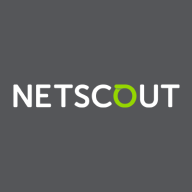


Arbor DDoS and Cloudflare One compete in the DDoS mitigation category. Arbor DDoS seems to have an upper hand due to its comprehensive threat intelligence and flexible deployment options suitable for ISPs and enterprises.
Features: Arbor DDoS offers a user-friendly GUI, effective protection through predefined filters, and flexible deployment options. It provides real-time traffic analysis, packet capture, and centralized management for enhanced visibility. Cloudflare One integrates DDoS protection, a web application firewall, and traffic analysis in a single user-friendly console.
Room for Improvement: Arbor DDoS could improve its auto-mitigation feature with better AI integration and expand its third-party integrations, particularly cloud signaling. Enhancements in scalability and system intuitiveness are needed. Cloudflare One could improve its initial setup process, support feedback mechanisms, and documentation clarity for dynamic application changes.
Ease of Deployment and Customer Service: Arbor DDoS offers versatile deployment options, including on-premises and hybrid environments, but has mixed customer service reviews. Cloudflare One is focused on public cloud deployment with straightforward setup but could benefit from more proactive support measures.
Pricing and ROI: Arbor DDoS is noted for high-performance capabilities but is considered costly with complex licensing models. However, it provides significant ROI by maintaining service uptime. Cloudflare One offers competitive pricing appealing for its simplicity and cost-effectiveness, especially for growing businesses, although pricing transparency could be improved.



Cloudflare is a highly-regarded Content Delivery Network (CDN) and a Distributed Denial-of-Service (DDoS) protection solution. The robust global connectivity cloud platform that is Cloudflare ensures users are able to connect to the Internet quickly, securely, and reliably. Cloudflare is one of the world's largest networks in the marketplace today. Using Cloudflare, businesses, educational entities, NGOs, vloggers, bloggers, and anyone else with an internet presence can experience more secure, faster websites and applications.
Currently, there are millions of Internet locations on Cloudflare, and the Cloudflare network
continues to grow every day by the thousands. The solution is able to fulfill the requests for
millions of websites seamlessly and serves on average 45 million HTTP requests per second.
Cloudflare has safe, secure data centers in close to 300 cities worldwide to ensure every
client request is filled as quickly as possible. It is Cloudflare’s edge network that makes this
possible by keeping content and other services as close to each client as possible, so the
information requests are always only seconds away.
Many organizations that work in democracy, civil society, human rights, or the arts are able to
access Cloudflare's highest levels of protection for free via Project Galileo. Additionally, official
election websites can be secured from hacking and fraud through Cloudflare’s Project
Athenian, also at no additional cost.
Cloudflare can also help organizations of all sizes develop a robust zero-trust strategy to
ensure the highest levels of productivity and profitability. Employees, stakeholders, and end users have a greater level of satisfaction and overall improved user experience, which can, in
turn, result in higher revenues and overall ROI. Zero-trust and BYOD (bring your own device)
access ensure end users and employees always have the best resources and technology
available to them at all times.
Cloudflare benefits
Cloudflare has many benefits. Some of its most valuable benefits include:
- Faster load times
- Robust DNS security
- Intuitive cloud Web Application Firewall (WAF)
- Free universal SSL
- Image enhancement
- Automatic browser caching
- Next-generation cloud load balancer
- Accelerated Mobile Pages (AMP)
- Rate limiting
- Minification
- Zero-trust capabilities
- Cost-effective
- Reduced carbon footprint
Reviews from real users
“Many websites require an SSL certificate because they sell stuff and want SSL. Cloudflare
comes with an SSL certificate built in. It's automatic. You sign yourself up for Cloudflare, and
an SSL certificate automatically protects your website. If you have a connection between your
website and your host, the server, Cloudflare, and the host, you don't necessarily need a
certificate.” Spencer M., Owner at Tech Exchange
“What I like best about Cloudflare is that my company can use it to trace and manage
applications and monitor traffic. The solution tells you if there's a spike in traffic. Cloudflare
also sends you a link to check your equipment and deployment and track it through peering,
so it's a valuable tool.” Daniel P., Network Engineer at Ufinet
“The most valuable feature of Cloudflare is the GUI. You are able to control the solution very
well through the interface. There is a lot of functionality that is embedded in the service.” PeerSpot user, Competence Center Manager at a tech services company
Arbor DDoS provides effective mitigation against DDoS attacks with a user-friendly interface, integrating cloud and on-premise solutions for real-time traffic control and reporting. It supports large traffic volumes without latency, making it ideal for protecting online infrastructure.
Known for its intuitive GUI and rapid response, Arbor DDoS defends against complex DDoS threats using AI-driven anomaly detection and traffic categorization. It offers packet capture, robust reporting, and deployment flexibility, helping users maintain network stability and performance. While improvements in auto-mitigation, interface modernization, and scalability are needed, its hybrid protection approach efficiently secures networks for service providers and enterprises.
What are the key features of Arbor DDoS?Internet Service Providers and managed service providers utilize Arbor DDoS to secure network infrastructure and service availability. It's implemented in government and finance sectors for safeguarding customer websites and managing server traffic thresholds. Organizations deploy Arbor DDoS both on-premise and via cloud for extensive network protection.
Cloudflare One is a single-vendor Secure Access Service Edge (SASE) platform that enables Zero Trust security and any-to-any connectivity across enterprise applications, users, devices, and networks. Cloudflare One helps organizations simplify, modernize, and consolidate their IT architecture by converging security and networking services on our single global network and control plane.
Many organizations start by adopting our Security Service Edge (SSE) services — like ZTNA, SWG, CASB, and DLP — to reduce their attack surface, stop threats like phishing and ransomware, protect data, and apply identity-based Zero Trust verification across web, SaaS, and private app environments. Others prioritize simplifying network connectivity across offices, data centers, and cloud environments with our WANaaS.
Every service is available for customers to run in every location across Cloudflare’s global network, which today spans 330+ cities in 120+ countries, so you can scale connectivity with fast, consistent protections everywhere.
We monitor all Distributed Denial-of-Service (DDoS) Protection reviews to prevent fraudulent reviews and keep review quality high. We do not post reviews by company employees or direct competitors. We validate each review for authenticity via cross-reference with LinkedIn, and personal follow-up with the reviewer when necessary.